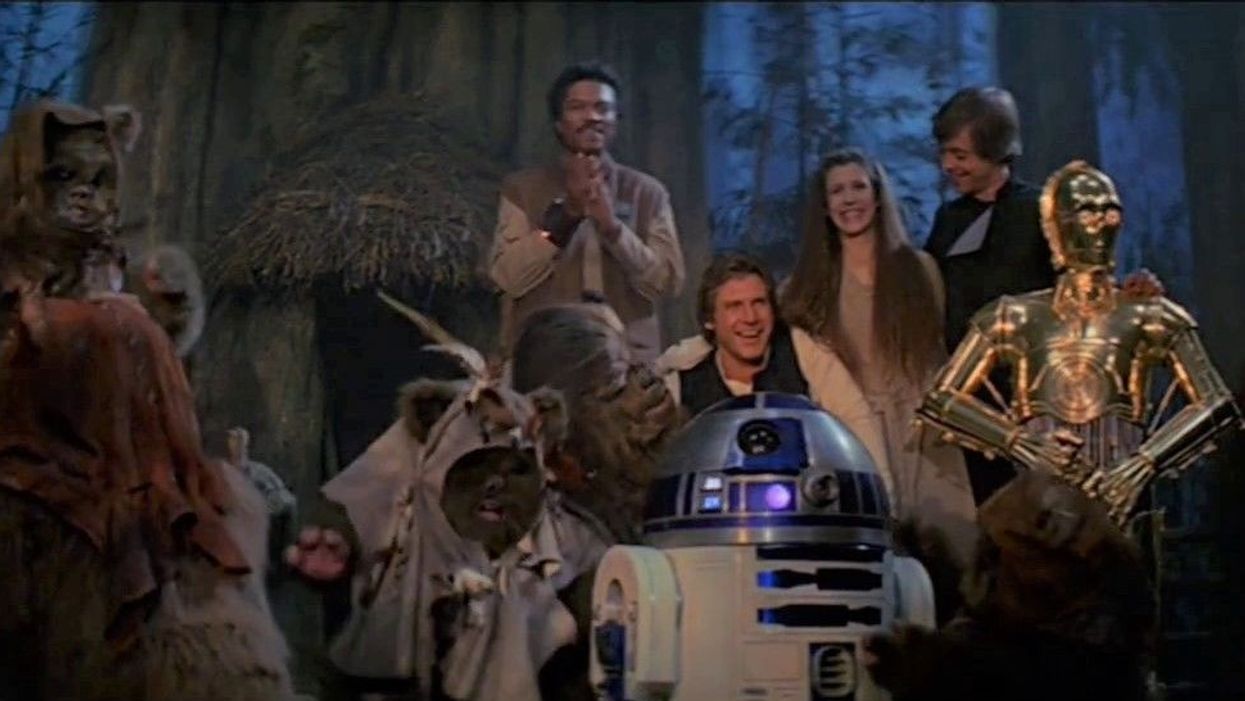Why Are Trilogies So Hard to Nail?
Ever wonder why the third installment doesn't always stick the landing?

I love a great movie trilogy. There's something about going on a journey with a set of characters that takes you not only through the breadth of their journey but across years of your own life that feels wondrous and beautiful.
Still, one of the biggest letdowns in cinematic experience is getting really hyped after the first two movies only to be supremely disappointed by the third. There are lots of bad third movies. I don't have to list them here, you know what they are. For Every Indiana Jones and the Last Crusade, there are a dozen X-Men: The Last Stands.
Even the third Godfather movie is a hotly debated topic.
I was really excited to see a new video from Patrick (H) Willems pop up on YouTube discussing trilogies and their ill-fated endings. I think this topic is great, especially with Holywood pushing so many franchises all of a sudden. Check it out and let's talk after.
Why Are Trilogies So Hard to Nail?
First, I want to say how much I enjoy videos from this YouTube channel. I think Patrick does an incredible job breaking down complex topics with caveats that make his arguments more sound and give the discussion around them more of a direction.
Like the video, let's only talk about trilogies that function as three parts of the same longer story. The reason for that is that making three movies now is actually commonplace. There are three Iron Man movies but they all serve a phase of the Marvel Cinematic Universe, and while they build on Tony Stark as a person, his real development and character and end don't even come in his own films.
Instead, let's focus on movies like Lord of the Rings, where we get the journey of characters on one mission, without the additional help of other features in the franchise. While that means leaving out things like the Cornetto trilogy, I feel like I write about them enough that you can seek them out on this website.
Okay... so why do many trilogies fail?
In the video, we hear a set of "guidelines" for how trilogies function. At their core, the idea is we have to build character over three movies to see how they arc in correlation with a mission that takes a long while to complete. We need to see the ups and downs of this journey and see how our protagonists deal with these trials as they change from movie one to movie three.
Of course, this is all subjective. But for argument's sake, let's say each movie in a trilogy follows the three-act structure. Movie one is the beginning, movie two is the middle, and the third movie is the ending. But it's not just the ending of one movie, but the ending of three. So the pressure is on. You have to wrap it all up in a way where the audience is satisfied and the sequence within all the movies is over.
The third installment must declare the ultimate meaning of all the movies that came before it... that's not easy!
Because the onus is on the third movie to make the other two work, the story for the third movie has to do three times the work the other two have to do as well. In many cases, third installments get so overloaded with story and plot that they never really work out the central character issues and just use a lot of exposition or sometimes not enough to tell us where everyone lands.
Think about how the third Matrix movie became about humans and machines compromising... when the audience wanted to see humanity win.
Another big hangup is that third installments often take themselves way too seriously, or change the tone of the franchise because they know it's coming to an end. This tonal change can neuter what made the franchise fun in the first place. Or it can feel over-serious and saturate the message as well.
Like in the third Pirates movie, when we don't really get the jokes or pithy wordplay to sustain all the plot about what's happening at the world's end.
These burdens get cumbersome and can halt storytelling. Still, movie trilogies like the Before movies stick the landing, so it's not impossible.
But it helps to have a singular definition for "what's it all about" that the movie can strive toward. A problem that arises is that a lot of times the first movie in a trilogy was written and made to be a one-off, so there is no plan for the next installments. That means you have to find a way to shoehorn in detail that was never meant to be to justify what is to come.
Instead, movies should focus on building off what the first left behind and following the path not to sum that up, but continue to build the narrative into something cohesive. See it as a foundation for more, and not something to replicate.
All in all, sequels are a tough nut to crack. What do you think are some of the hardest parts of writing them? What are some movies that you think stuck the landing? And what did you think of the video?
Let us know in the comments.











